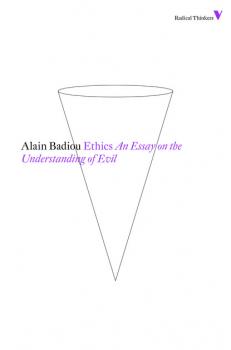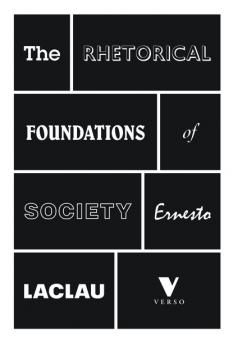ТОП просматриваемых книг сайта:
Философия
Различные книги в жанре Философия, доступные для чтения и скачиванияАннотация
First published in 1964, this classic text uses the concept of “world visions,” first elaborated in the early work of Georg Lukács, as a tool whereby the similarities between Pascal’s Pensées and Kant’s critical philosophy are contrasted with the ra-tionalism of Descartes and the empiricism of Hume. For Lucien Goldmann, a leading exponent of the most fruitful method of applying Marxist ideas to literary and philosophical problems, the “tragic vision” marked an important phase in the development of European thought from rationalism and empiricism to the dialectical philosophy of Hegel, Marx and Lukács. Here he offers a general approach to the problems of philosophy, of literary criticism, and of the relationship between thought and action in hu-man society.
Аннотация
Leading French thinker with his key work on philosophical thought In Metaphilosophy, Henri Lefebvre works through the implications of Marx’s revolutionary thought to consider philosophy’s engagement with the world. Lefebvre takes Marx’s notion of the “world becoming philosophical and philosophy becoming worldly” as a leitmotif, examining the relation between Hegelian–Marxist supersession and Nietzschean overcoming. Metaphilosophy is conceived of as a transformation of philosophy, developing it into a programme of radical worldwide change. The book demonstrates Lefebvre’s threefold debt to Hegel, Marx and Nietzsche, but it also brings a number of other figures into the conversation, including Sartre, Heidegger and Axelos. A key text in Lefebvre’s oeuvre, Metaphilosophy is also a milestone in contemporary thinking about philosophy’s relation to the world.
Аннотация
This collection of the legendary thinker’s radio broadcasts brings together some of his most accessible and fascinating thinking. Walter Benjamin was fascinated by the impact of new technology on culture, an interest that extended beyond his renowned critical essays. From 1927 to ’33, he wrote and presented something in the region of eighty broadcasts using the new medium of radio. Radio Benjamin gathers the surviving transcripts, which appear here for the first time in English. This eclectic collection demonstrates the range of Benjamin’s thinking and his enthusiasm for popular sensibilities. His celebrated “Enlightenment for Children” youth programs, his plays, readings, book reviews, and fiction reveal Benjamin in a creative, rather than critical, mode. They flesh out ideas elucidated in his essays, some of which are also represented here, where they cover topics as varied as getting a raise and the history of natural disasters, subjects chosen for broad appeal and examined with passion and acuity. Delightful and incisive, this is Walter Benjamin channeling his sophisticated thinking to a wide audience, allowing us to benefit from a new voice for one of the twentieth century’s most respected thinkers.
Аннотация
One of the most powerful voices in contemporary French philosophy explodes the facile assumptions behind the recent ethical turn. Ethical questions dominate current political and academic agendas. While government think-tanks ponder the dilemmas of bio-ethics, medical ethics and professional ethics, respect for human rights and reverence for the Other have become matters of broad consensus. Alain Badiou, one of the most powerful voices in contemporary French philosophy, explodes the facile assumptions behind this recent ethical turn. He shows how our prevailing ethical principles serve ultimately to reinforce an ideology of the status quo, and fail to provide a framework for an effective understanding of the concept of evil. In contrast, Badiou summons up an “ethic of truths” which is designed both to sustain and inspire a disciplined, subjective adherence to a militant cause (be it political or scientific, artistic or romantic), and to discern a finely demarcated zone of application for the concept of evil. He defends an effectively super-human integrity over the respect for merely human rights, asserts a partisan universality over the negotiation of merely particular interests, and appeals to an “immortal” value beyond the protection of mortal privileges.
Аннотация
Zizek’s new philosophical masterwork. In this major new work the leading philosopher Slavoj Zizek argues that philosophical materialism has failed to meet the key scientific, theoretical and political challenges of the modern world, from relativity theory and quantum physics to Freudian psychoanalysis and the failure of twentieth-century Communism. To bring materialism up to date, Zizek proposes a new foundation for dialectical materialism. He argues that dialectical materialism is the only true philosophical inheritor of what Hegel designates as the speculative approach of thought – all other forms of materialism fail. In Absolute Recoil, Zizek offers a startling reformulation of the ground and possibilities of contemporary philosophy.
Аннотация
Early critique of Freud from a Marxist and linguistic perspective. Freudianism is a major icon in the history of ideas, independently rich and suggestive today both for psychoanalysis and for theories of language. It offers critical insights whose recognition demands a change in the manner in which the fundamental principles of both psychoanalysis and linguistic theory are understood. Volosinov went to the root of Freud's theory adn method, arguing that what is for him the central concept of psychoanalysis, «the unconscious,» was a fiction. He argued that the phenomena that were taken by Freud as evidence for «the unconscious» constituted instead an aspect of «the conscious,» albeit one with a person's «official conscious.»For Volosinov, «the conscious» was a monologue, a use of language, «inner speech» as he called it. As such, the conscious participated in all of the properties of language, particularly, for Volosinov, its social essence. This type of argumentation stood behind Volosinov's charge that Freudianism presented humans in an inherently false, individualistic, asocial, and ahistorical setting.
Аннотация
Coauthor of Hegemony and Socialist Strategy shows how rhetoric constitutes the social order. The essays collected in this volume develop the theoretical perspective initiated in Laclau and Chantal Mouffe's classic Hegemony and Socialist Strategy. Central to the argument of The Rhetorical Foundations of Society is the establishment of rhetorical tropes—such as metaphor, metonymy and catachresis—as the 'non-foundational' grounds of society. From this basis, Laclau explores the state of social relations in today's heterogeneous society. Employing analytical philosophy from both phenomenological and structuralist traditions, he seeks to locate an ontological terrain for interpersonal relationships. Further, he investigates the definition of social antagonism in an increasingly globalized world, where the proliferation of conflicts and points of rupture erodes crucial links between the social subjects postulated by classical social analysis.
Аннотация
What Shakespeare's greatest play tells us about the modern world Arguably, no literary work is more familiar to us than Shakespeare’s most famous tragedy. Everyone can quote at least six words from the play; often people know many more. In this riveting and thought-provoking re-examination, philosopher Simon Critchley and psychoanalyst Jamieson Webster explore Hamlet’s continued relevance for a modern world no less troubled by existential anxieties than Elizabethan London. Reading the drama alongside writers, philosophers and psychoanalysts—Schmitt, Benjamin, Freud, Lacan, Nietzsche, Melville, and Joyce—the authors delve into the politics of the era, the play’s relationship to religion, the exigencies of desire and the incapacity to love. It is an intellectual investigation that leads to a startling conclusion: Hamlet is a play about nothing in which Ophelia emerges as the true hero. From the illusion of theatre and the spectacle of statecraft to the psychological theatre of inhibition and emotion, what Hamlet makes manifest is the modern paradox of our lives: where we know, we cannot act. The Hamlet Doctrine is a passionate encounter with a great work of literature that continues to speak to us across centuries.
Аннотация
A panoramic account of the world’s leading writers and thinkers <pAs the crisis of capitalism unfolds, the need for alternatives is felt ever more intensely. The struggle between radical movements and the forces of reaction will be merciless. A crucial battlefield, where the outcome of the crisis will in part be decided, is that of theory.Over the last twenty-five years, radical intellectuals across the world have produced important and innovative ideas. The endeavour to transform the world without falling into the catastrophic traps of the past has been a common element uniting these new approaches.This book—aimed at both the general reader and the specialist—offers the first global cartography of the expanding intellectual field of critical contemporary thought. More than thirty authors and intellectual currents of every continent are presented in a clear and succinct manner. A history of critical thought in the twentieth and twenty-first centuries is also provided, helping situate current thinkers in a broader historical and sociological perspective.
Аннотация
First systematic presentation and assessment of the groundbreaking journal Cahiers pour l’Analyse. Concept and Form is a two-volume monument to the work of the philosophy journal the Cahiers pour l’Analyse (1966–69), the most ambitious and radical collective project to emerge from French structuralism. Inspired by their teachers Louis Althusser and Jacques Lacan, the editors of the Cahiers sought to sever philosophy from the interpretation of given meanings or experiences, focusing instead on the mechanisms that structure specific configurations of discourse, from the psychological and ideological to the literary, scientific, and political. Adequate analysis of the operations at work in these configurations, they argue, helps prepare the way for their revolutionary transformation. Volume One of Concept and Form translates some of the most important theoretical texts from the Cahiers pour l’Analyse; this second volume collects newly commissioned essays on the journal, together with recent interviews with people who were either members of its editorial board or associated with its broader theoretical project. It aims to help reconstruct the intellectual context of the Cahiers, and to assess its contemporary theoretical legacy. Prefaced by an overview of the project’s rigorous investment in science and conceptual analysis, the volume considers in particular the Cahiers’ distinctive effort to link the apparently incommensurable categories of ‘structure’ and ‘subject’, so as to prepare for a new synthesis of Marxism and psychoanalysis. Contributors include Alain Badiou, Etienne Balibar, Edward Baring, Jacques Bouveresse, Yves Duroux, Alain Grosrichard, Peter Hallward, Adrian Johnston, Patrice Maniglier, Tracy McNulty, Jean-Claude Milner, Knox Peden, Jacques Rancière, François Regnault, and Slavoj Zizek.










